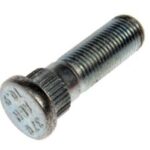Starting a car repair shop can be a rewarding venture, tapping into the consistent demand for vehicle maintenance and repair services. However, before you jump in, it’s crucial to understand the different types of auto repair shops and the essential steps involved in setting up your own business. This guide will walk you through everything you need to consider to launch a successful car repair shop.
Understanding Different Types of Auto Repair Shops
The automotive repair industry is diverse, and choosing the right niche is your first step. Here’s a breakdown of common types of auto repair shops:
-
Dealership Repair Shops: These are typically associated with car dealerships and specialize in servicing the specific makes they sell. While lucrative, opening a dealership is a significant undertaking beyond the scope of a standalone repair shop. For most entrepreneurs, this model isn’t directly applicable unless you’re already in the car sales industry and looking to expand services.
-
Independent Repair Shops: These are the most common type and offer a broad spectrum of maintenance and repair services for various vehicle makes and models. From routine oil changes and tire rotations to complex engine and transmission repairs, independent shops aim to be a one-stop solution for car owners. This model offers flexibility and a wide customer base.
-
Specialty Repair Shops: These shops carve out a niche by focusing on specific vehicle brands or particular types of repairs. For example, a specialty shop might exclusively service luxury brands like BMW or Mercedes-Benz, or concentrate solely on services like brake repairs, transmission overhauls, or exhaust system work. Specialization can attract a loyal customer base seeking expertise in a specific area.
Auto Repair Shop vs. Auto Body Shop: Knowing the Distinction
It’s important to differentiate between an auto repair shop and an auto body shop, as they address different aspects of vehicle maintenance. While sometimes used interchangeably, their services are distinct:
-
Auto Repair Shops (Mechanic Shops): Focus on the mechanical and electrical components of a vehicle. Mechanics diagnose and repair issues related to the engine, brakes, transmission, suspension, exhaust, electrical systems, and more. They ensure the car runs smoothly and safely from a functional perspective.
-
Auto Body Shops (Collision Repair Shops): Specialize in repairing the exterior and structural damage to vehicles, often resulting from accidents. Body shops handle tasks like dent removal, panel replacement, frame straightening, and repainting. They restore the vehicle’s appearance and structural integrity after collisions.
While some businesses may offer both repair and bodywork services, understanding this distinction is crucial when defining your shop’s focus.
Garage vs. Mobile Mechanic Business: Choosing Your Business Model
Once you’ve decided on the type of repair shop, the next decision is whether to operate from a fixed garage location or offer mobile mechanic services. Each model has its own advantages and disadvantages:
Garage-Based Repair Shop
Pros:
- Weather Independence: A garage provides a sheltered workspace, allowing operations to continue regardless of weather conditions.
- Space for Inventory & Equipment: Garages offer ample space to store parts inventory, specialized tools, and equipment, streamlining repairs.
- Professional Setting: A physical shop location often projects a more established and professional image, potentially building customer trust.
- Wider Range of Services: With more space and equipment, garages can handle a broader range of complex repairs.
Cons:
- Higher Startup Costs: Renting or purchasing a garage, along with equipping it, involves significant initial investment.
- Overhead Expenses: Ongoing costs like rent, utilities, and property maintenance add to operational expenses.
- Customer Convenience: Customers need to bring their vehicles to your location, which might be less convenient for some.
Mobile Mechanic Business
Pros:
- Lower Startup Costs: Eliminates the need for a physical location, significantly reducing initial investment and overhead.
- Convenience for Customers: Mobile mechanics travel to the customer’s location (home, workplace, etc.), offering unparalleled convenience.
- Flexibility: Mobile businesses offer greater flexibility in terms of location and working hours.
Cons:
- Weather Dependent: Working outdoors can be challenging and sometimes impossible in adverse weather conditions.
- Limited Space for Inventory & Equipment: Carrying a large inventory of parts and specialized equipment in a mobile setup is impractical.
- Logistics & Scheduling: Efficient scheduling and travel logistics are crucial for maximizing productivity.
- Building Trust: Establishing trust and credibility can be more challenging without a physical shop location.
- Service Limitations: Complex repairs requiring extensive equipment or a controlled environment might be difficult to perform on-site.
Alt text: A mechanic in a blue uniform is deeply focused on working on a car engine in a well-lit garage, showcasing the expertise required in car repair.
Step-by-Step Guide: How to Start a Mechanic Shop
Launching a successful car repair shop requires careful planning and execution. Here are essential steps to guide you through the process:
1. Set Up Your Business Structure
Choosing the right business structure is fundamental as it impacts legal liability, taxation, and administrative processes. Common structures include:
- Sole Proprietorship: Simple to set up for individual owners. The business is directly linked to the owner, meaning personal assets are at risk in case of business liabilities.
- Limited Liability Company (LLC): Offers liability protection by separating personal and business assets. It provides more credibility and can simplify fundraising. LLCs involve registration fees and ongoing compliance requirements.
- Partnership: Suitable for businesses with two or more owners. Partners share profits, losses, and responsibilities. Partnership agreements are crucial to define roles, responsibilities, and dispute resolution.
- S Corporation (S-Corp): A more complex structure that can offer tax advantages for profitable businesses. It provides liability protection and can be beneficial for reinvesting profits in the business. S-Corps have stricter compliance requirements.
Recommendation: Consult with a legal and tax professional to determine the most suitable business structure for your specific circumstances.
2. Obtain Necessary Licenses, Permits, and Certifications
Operating a legal and reputable car repair shop requires obtaining the correct licenses, permits, and certifications. Requirements vary by location, so it’s essential to check with your local, state, and federal authorities. Common requirements include:
- Business License: A general license to operate a business within your jurisdiction.
- Occupancy Permit: Required for physical shop locations to ensure compliance with zoning regulations, building codes, and safety standards.
- Employer Identification Number (EIN): Needed from the IRS for tax purposes if you operate as an LLC, Partnership, or S-Corp, or if you hire employees.
- Environmental Certifications (EPA): Mandatory EPA certification for handling refrigerants if you service vehicle air conditioning systems, along with potential state or local environmental regulations for waste disposal and other shop practices.
- ASE Certifications: While not always legally required to open, Automotive Service Excellence (ASE) certifications are highly recommended for mechanics. ASE certifications demonstrate competence and professionalism, enhancing customer trust and shop credibility. They can also be beneficial when seeking business financing or insurance.
Alt text: The exterior of a well-maintained car repair shop with multiple service bays visible, highlighting the professional infrastructure needed for a successful auto repair business.
3. Develop a Comprehensive Business Plan
A well-structured business plan is your roadmap to success. It helps you define your goals, strategies, and financial projections. Key components of an auto repair shop business plan include:
- Executive Summary: A brief overview of your business concept, mission, and objectives.
- Company Description: Details about your business structure, ownership, history (if any), and unique selling propositions.
- Market Analysis: Research and analysis of your target market, including demographics, local competition, market trends, and demand for auto repair services in your area.
- Services Offered: A detailed list of the services you will provide, including pricing strategies, service packages, and specialization (if any).
- Marketing and Sales Plan: Strategies for attracting and retaining customers, including online marketing, local advertising, customer referral programs, and community engagement.
- Financial Projections: Realistic financial forecasts, including startup costs, operating expenses, revenue projections, break-even analysis, and funding requests (if seeking loans or investors).
- Management Team: Information about your management team, their experience, and roles within the business.
- Appendix: Supporting documents, such as permits, licenses, resumes of key personnel, and market research data.
Benefit: A strong business plan is essential not only for internal guidance but also when seeking funding from banks or investors.
4. Secure Adequate Business Insurance
Protecting your investment with appropriate insurance coverage is crucial in the auto repair industry, where risks are inherent. Essential insurance types include:
- Commercial Property Insurance: Covers your physical shop location (if applicable), equipment, tools, parts inventory, and furniture against damage from fire, theft, vandalism, or natural disasters. It can also cover business interruption costs.
- General Liability Insurance: Protects your business from financial losses due to third-party claims of bodily injury, property damage, or advertising injury caused by your business operations.
- Professional Liability Insurance (Errors & Omissions Insurance): Covers claims of negligence or errors in your professional services, such as misdiagnosis or faulty repairs.
- Garagekeepers Insurance: Specifically designed for auto repair shops, it covers damage to customers’ vehicles while they are in your care, custody, or control for repairs or storage.
- Workers’ Compensation Insurance: Mandatory in most states if you have employees, it covers medical expenses and lost wages for employees injured on the job.
- Commercial Auto Insurance: If you have company vehicles (e.g., tow trucks, service vehicles), commercial auto insurance is necessary to cover accidents and liabilities.
Recommendation: Consult with an insurance broker specializing in auto repair shops to assess your specific risks and secure comprehensive coverage.
5. Promote Your Mechanic Shop Effectively
Effective marketing is vital to attract and retain customers. Utilize a multi-faceted marketing approach:
- Professional Website: A user-friendly website is essential in today’s digital age. Include your shop’s location, services offered, hours, contact information, online appointment booking, customer testimonials, and special offers. Optimize your website for local SEO to rank higher in search results when people search for “car repair near me.”
- Grand Opening Event: Generate local buzz with a grand opening event. Offer special promotions, discounts, free car inspections, or giveaways to attract initial customers.
- Local SEO (Google My Business): Optimize your Google My Business profile to improve visibility in local search results and Google Maps. Encourage customer reviews on Google and other platforms.
- Online Advertising: Consider targeted online advertising campaigns on platforms like Google Ads and social media to reach potential customers in your service area.
- Social Media Marketing: Establish a presence on social media platforms like Facebook and Instagram. Share helpful car maintenance tips, shop updates, customer testimonials, and run contests or promotions.
- Local Partnerships: Collaborate with local businesses, such as car dealerships, car washes, and gas stations, for cross-promotions and referrals.
- Traditional Advertising: Consider local newspaper ads, community newsletters, and radio spots, especially in smaller communities.
- Signage: Ensure your shop has clear and visible signage to attract drive-by traffic.
- Customer Referral Program: Incentivize existing customers to refer new clients through discounts or rewards.
By following these steps diligently, you’ll be well-prepared to open and operate a thriving car repair shop, providing valuable services to your community and building a sustainable business.


